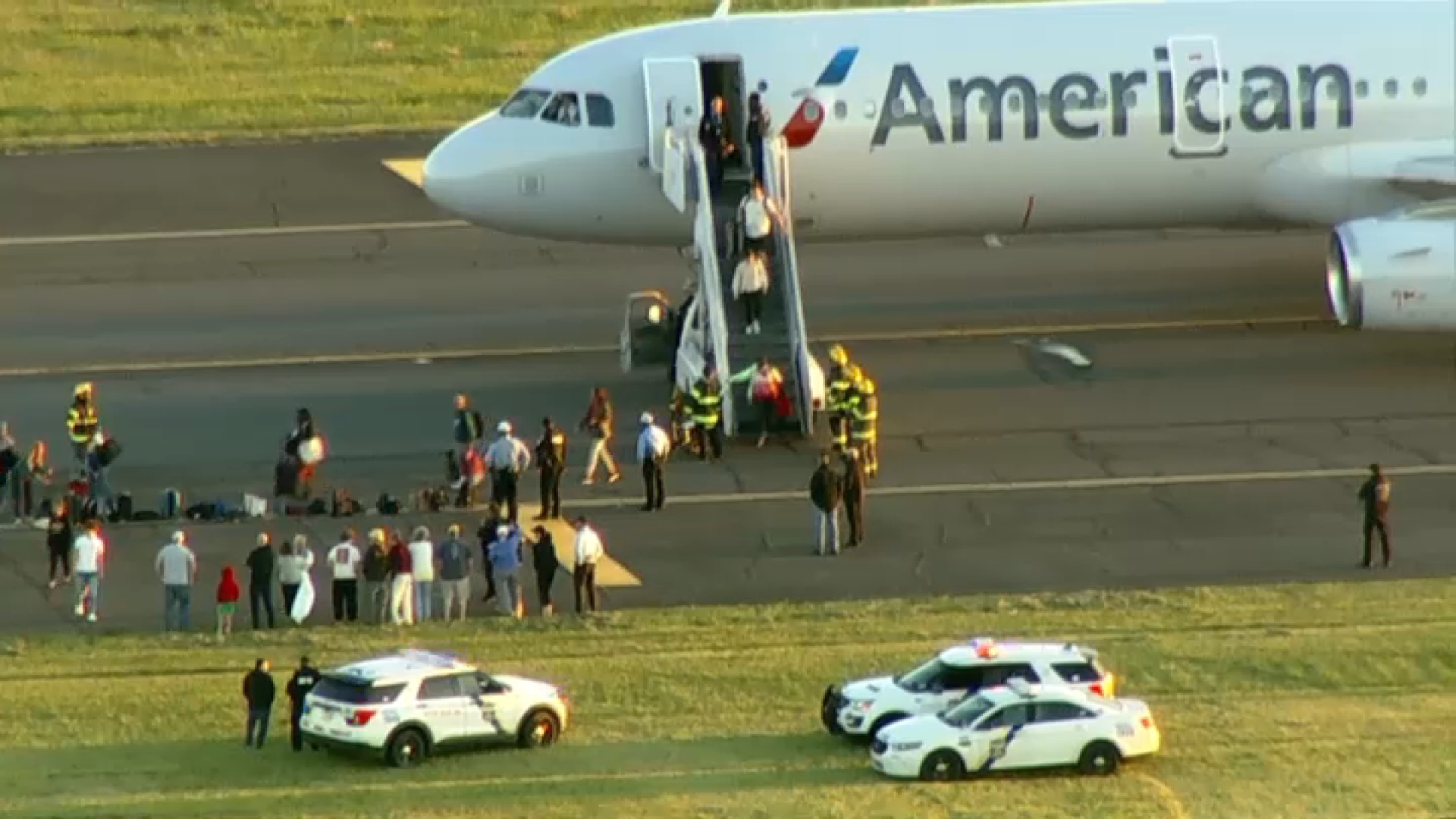- Previous Coverage: 5 Remain in Critical Condition After Food Truck Propane Tank Explodes
When it comes to Philadelphia's food trucks, is anyone safe?
The Philadelphia Department of Licenses and Inspections says there are more than 300 active, licensed mobile food vendors in Philadelphia.
Yet propane tanks, the most common item used to fuel grills and fryers on food trucks, are not inspected by any agency in the city.
Without mandatory oversight, mobile food business owners could be riding through your neighborhood carrying hundreds of pounds of liquefied petroleum gas in unsafe tanks, which at any time could explode.
Philadelphia Police say a leak caused a propane tank on the back of the La Parrillada Chapina food truck at 3rd Street and Wyoming Avenue to explode late Tuesday, sending 13 people — some sitting on the steps of a house across the street — to nearby hospitals with injuries. Five people were critically injured and remained hospitalized Wednesday.
Officials from the top agencies regulating the mobile food industry in Philadelphia, L&I and the Philadelphia Department of Public Health, say there are no specific rules in place to ensure the safety and proper maintenance of propane tanks used on food trucks.
Local
Breaking news and the stories that matter to your neighborhood.
In order to open a mobile food business in Philadelphia, a business owner must first have their vehicle licensed by the Department of Motor Vehicles and must obtain location approval, as well as food and vendor licensing from L&I.
Business owners must also obtain Food Safety Certifications and undergo rigorous food and equipment inspections by the Philadelphia Department of Public Health's Office of Food Protection.
All three departments, however, confirmed that they do not check propane tanks as a part of their food truck inspection process.
"We handle food safety and are not involved in fire safety issues," Department of Health spokesman Jeff Moran said.
Moran pointed to L&I.
L&I Commissioner Carlton Williams confirmed that the department conducted an audit inspection of the La Parrillada Chapina food truck less than a month ago on June 11.
That inspection, however, was limited to vending, location and proper licensing issues, the only areas L&I inspects for any mobile food vendor in the city.
"L&I regulates vending locations of where all trucks, trailers, food carts, etc. can legally sell products," Williams said. "L&I does not regulate or inspect the actual operation of the vehicle or it's mechanical components."
With no agency oversight, propane tank safety falls into the hands of individual food truck owners, food truck suppliers and propane tank distributors like the South Philly Propane & Welding Company.
According to investigators, the La Parrillada Chapina food truck had two 100-pound propane tanks on the truck, one of which exploded and flew nearly 95 feet from the truck after a vapor leak was ignited by one of the truck's grills.
South Philly Propane owner Joseph Trantas said the 100-pound tanks hold roughly 23.5 gallons of propane. That's five times the size of the 4.7-gallon tanks typically used with home barbecue grills.
Trantas said any number of things could have led to the explosion.
"It looks like it ruptured, so it could have been a bad tank problem. These tanks get banged on the ground quite a bit, so the bottom could give out and cause a leak," he said.
According to Trantas, owners typically purchase propane tanks and come to companies like his to get them refilled an innumerable number of times. Trantas said his company has a checklist that it abides by — looking for dents, signs of corrosion and more — to make sure tanks are safe before refilling them.
Mobile food truck repairman Eri Meni said he personally knew the owner of the La Parrillada Chapina food truck, Olga Galdamez, and that he had installed a kitchen in the food truck less than a year ago.
Meni said owners have to be very vigilant when handling propane tanks.
"The owner must be very careful when they change the propane tanks because many people, in lunchtime that’s so busy, they go fast," he said.
"Many people make a lot of mistakes, but this is very important. If you don’t tie it good, the gas will leak, and any little spark, you’re gonna have the same thing happening."
Food truck owner and board member of the Philadelphia Mobile Food Truck Association George Bieber said the transport of propane tanks should also be monitored and regulated.
"I've had to drive my truck around, and it can be a bumpy ride," he said.
"One of the biggest things to consider with gas lines and things like that is that there could be some issues caused by that vibration and movement. I think that's something that needs to be thought about a little more."



